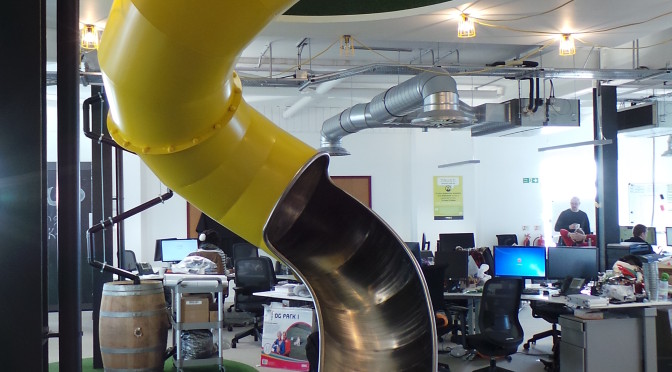Update: 250 people signed up for the webinar.
Watch it here and get the slides and additional materials here.
Companies have tried many different tricks to make their employees happier. Raises, bonus schemes, promotions, foosball tables, lavish lunches, gyms, massages – even slides and live piano players in the employee cafeteria.
But it turns out those things are not even remotely connected to happiness at work. In fact, in many cases they become distractions that keep workplaces from doing the things that really matter.
So if your workplace has some (or all) of the above and people are still not happy, engaged and motivated, this webinar can tell you what’s gone wrong and what to do instead.
Join us on Thursday September 25 if you’d like to learn about:
- What it actually is that makes employees happy at work (it’s not what you think).
- Why raises, bonuses and promotions do not cause happiness – but can absolutely cause unhappiness.
- What the science of happiness (also known as positive psychology) says and how it can be applied in the workplace.
- The one question almost every company forgets to ask about happiness at work.
- Specific examples of what a workplace can do that actually works and does make its people happier.
- What you yourself can do, to become happier at work.
The webinar will be short (only 30 minutes) and punchy. We will get to the point quickly and leave you with new information and tools you can actually use.
Date and time: Thursday September 25 at noon US East coast time / 9am pacific time / 5pm GMT / 6pm Central European time.
The webinar will be held live on our youtube channel, so there is no login needed and no software to install. If you can watch youtube, you can join. There will be a chance to ask questions via chat.









 The content of the training will include:
The content of the training will include:





